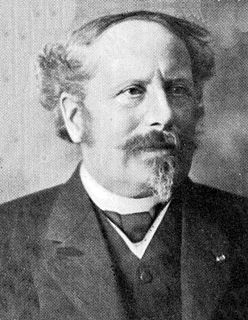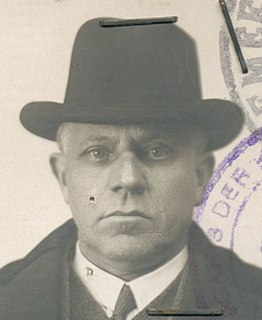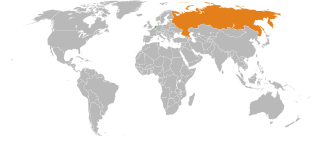External links
- Harmsen, Ger. Onsman, Inte. Biografisch Woordenboek van Socialisme en de Arbeidersbeweging in Nederland (an online dictionary of the history of socialism and the labourmovement in the Netherlands (in Dutch).
Willem Inte Onsman (Harlingen, 28 September 1872 - Amsterdam, 26 August 1929) was a Dutch playwright and trade unionist.
Born in the province of Friesland, Inte Onsman moved to Amsterdam after the death of his father. His mother sent him to a barbershop as apprentice. After finishing school he became a barber. As a young man he joined a theatre company as an actor, but a few years later he left the group and started his own barbershop. His socialist sympathies drew him to the Dutch social-democratic party SDAP and the barbers trade union. He became the national secretary of the union, a position he held until his death.
Around 1900 Onsman started writing plays. His most successful was Het licht in den nacht (A light in the night) which dealt with the poor during World War I. In the Netherlands it was performed more than hundred times. It was translated in German, Danish and English. Onsman also wrote an autobiographical novel, that appeared in 1929, the year of his sudden death.

The history of the Netherlands is a history of seafaring people thriving in the lowland river delta on the North Sea in northwestern Europe. Records begin with the four centuries during which the region formed a militarized border zone of the Roman Empire. This came under increasing pressure from Germanic peoples moving westwards. As Roman power collapsed and the Middle Ages began, three dominant Germanic peoples coalesced in the area, Frisians in the north and coastal areas, Low Saxons in the northeast, and the Franks in the south.

Willem "Wim" Kok was a Dutch politician and trade union leader who served as Prime Minister of the Netherlands from 22 August 1994 until 22 July 2002. He was a member of the Labour Party (PvdA).

Cornelis de Houtman was a Dutch merchant seaman who commanded the first Dutch expedition to the East Indies. Although the voyage was difficult and yielded only a modest profit, Houtman showed that the Portuguese monopoly on the spice trade was vulnerable. A flurry of Dutch trading voyages followed, eventually leading to the displacement of the Portuguese and the establishment of a Dutch monopoly on spice trading in the East Indies.

Christiaan Karel Appel was a Dutch painter, sculptor, and poet. He started painting at the age of fourteen and studied at the Rijksakademie in Amsterdam in the 1940s. He was one of the founders of the avant-garde movement CoBrA in 1948. He was also an avid sculptor and has had works featured in MoMA and other museums worldwide.

The Eighty Years' War or Dutch War of Independence (1568–1648) was a revolt of the Seventeen Provinces of what are today the Netherlands, Belgium and Luxembourg against Philip II of Spain, the sovereign of the Spanish Netherlands. After the initial stages, Philip II deployed his armies and regained control over most of the rebelling provinces. Under the leadership of the exiled William the Silent, the northern provinces continued their resistance. They eventually were able to oust the Habsburg armies, and in 1581 they established the Republic of the Seven United Netherlands. The war continued in other areas, although the heartland of the republic was no longer threatened. This included the origins of the Dutch colonial empire, which began with Dutch attacks on Portugal's overseas territories. At the time, this was conceived as carrying the war with the Spanish Empire overseas due to Portugal and Spain's being in a dynastic union, making the war one of the first global wars.

Hendricus Josephus Franciscus Marie (Henk) Sneevliet, known as Henk Sneevliet or by the pseudonym "Maring", was a Dutch Communist, who was active in both the Netherlands and the Dutch East Indies. As a functionary of the Communist International, Sneevliet guided the formation of the Chinese Communist Party in 1921. In his native country, he was the founder, chairman and only Representative for the Revolutionary Socialist (Workers') Party, RSP/RSAP. He took part in the Communist resistance against the Nazi occupation of the Netherlands during World War II, for which he was executed by the Germans in April 1942.

Cornelis Lely was a Dutch politician of the Liberal Union (LU) and civil engineer. He oversaw the passage of an act of parliament authorising construction of the Zuiderzee Works, a huge project – designed to his own plans – that turned the Zuiderzee into a lake and made possible the conversion of a vast area of former seabed into dry land.

The history of the Jews in the Netherlands began largely in the 16th century when they began to settle in Amsterdam and other cities. It has continued to the present. Following the occupation of the Netherlands by Nazi Germany in May 1940, the Jewish community was severely persecuted.

Samuel Sarphati was a Dutch physician and Amsterdam city planner.

Floris Adriaan van Hall, Baron of Hall was a prominent Dutch nobleman and statesman in the 19th century. He played an important role as representative of the Amsterdam trade and banking sector, and later as politician. He served as Prime Minister of the Netherlands from 1853 to 1856, and again from 1860 to 1861.
The Great Depression in the Netherlands occurred between 1933 and 1936, significantly later than in most other countries. It was a period of severe economic crisis in the 1930s which affected countries around the world, including the Netherlands.

Emanuel Querido was a successful Dutch publisher as the founder and owner of N.V. Em. Querido Uitgeversmaatschappij, which published Dutch titles, and of Querido Verlag, which published titles of German writers in exile from Nazi Germany. Although he and his wife were murdered by the Nazis in 1943, his company has gone on to publish several important authors.

Netherlands–Russia relations is the relationships between the two countries, the Kingdom of the Netherlands and The Russian Federation. Russia has an embassy in The Hague, and the Netherlands has an embassy in Moscow, a consulate in Saint Petersburg, and an honorary consulate in Yuzhno-Sakhalinsk.

The Dutch Revolt (1566–1648) was the revolt in the Low Countries against the repressive rule of the Habsburg King Philip II of Spain, hereditary ruler of the provinces. The northern provinces eventually separated from the southern provinces, which continued under Habsburg Spain until 1714. The northern provinces adopted Calvinism and Republicanism whereas the southern provinces became wholly Catholic again due to the expulsion of Protestants and the efforts of the Counter-Reformation and remained under absolutist rule. The Dutch Revolt has been viewed as the seedbed of the major democratic revolutions from England, to America to France.

Het Vrije Volk was a Dutch social-democratic daily newspaper. It was the successor, after World War II, of the socialist daily Het Volk. The paper appeared legally 1 March 1945 in Eindhoven. From 28 January 1946, all subdivisions of the newspaper were united and a national edition was introduced. For a time, it was the biggest newspaper in the Netherlands and at its peak it had over 300 editors and reporters. After 1958, the number of subscribers decreased rapidly.

Emanuel ("Manus") Boekman was a Dutch social democratic politician, statistician, demographer and typographer. He is remembered for his activities as a municipal executive board member for education and culture (wethouder) in Amsterdam and his advocacy for an active state cultural policy.

Andries Bonger was a Dutch art collector, as well as Johanna van Gogh-Bonger's brother and Theo van Gogh's friend, who later became his brother-in-law.

Henri Polak was a Dutch trade unionist and politician. Polak is best remembered as a longtime president of the General Diamond Workers' Union of the Netherlands (ANDB) and as a founder of the Dutch Social Democratic Workers' Party in 1894. Targeted as a Jew, a socialist, and a trade unionist, Polak was arrested by the Nazis in 1940 but died early in 1943 before he could be deported.
Anarchism in the Netherlands originated in the second half of the 19th century. Its roots lay in the radical and revolutionary ideologies of the labor movement, in anti-authoritarian socialism, the free thinkers and in numerous associations and organizations striving for a libertarian form of society. During the First World War, individuals and groups of syndicalists and anarchists of various currents worked together for conscientious objection and against government policies. The common resistance was directed against imperialism and militarism.

Daniël Daan Goulooze was a Dutch Jewish construction worker who was a committed communist and resistance fighter.. In 1925, he became a member of the Communist Party of the Netherlands (CPN) and by 1930 had become an executive member of the organisation. In 1934, he formed Pegasus publishing house that published many left-wing writers and intellectuals in the Netherlands, some for the first time. In 1935–1936, Goulooze formed the Dutch Information Service (DIS), an organisation that supplied information to the Soviet Union. Goulooze become the liaison between the organisation and the CPN. In 1937, he went to the Soviet Union, where he received intelligence training at the Marx–Engels–Lenin Institute in Moscow. Upon returning, he became the liaison officer of Communist International (Comintern) in the Neterlands, his main duty being to maintain on-going radio contact with Soviet intelligence.